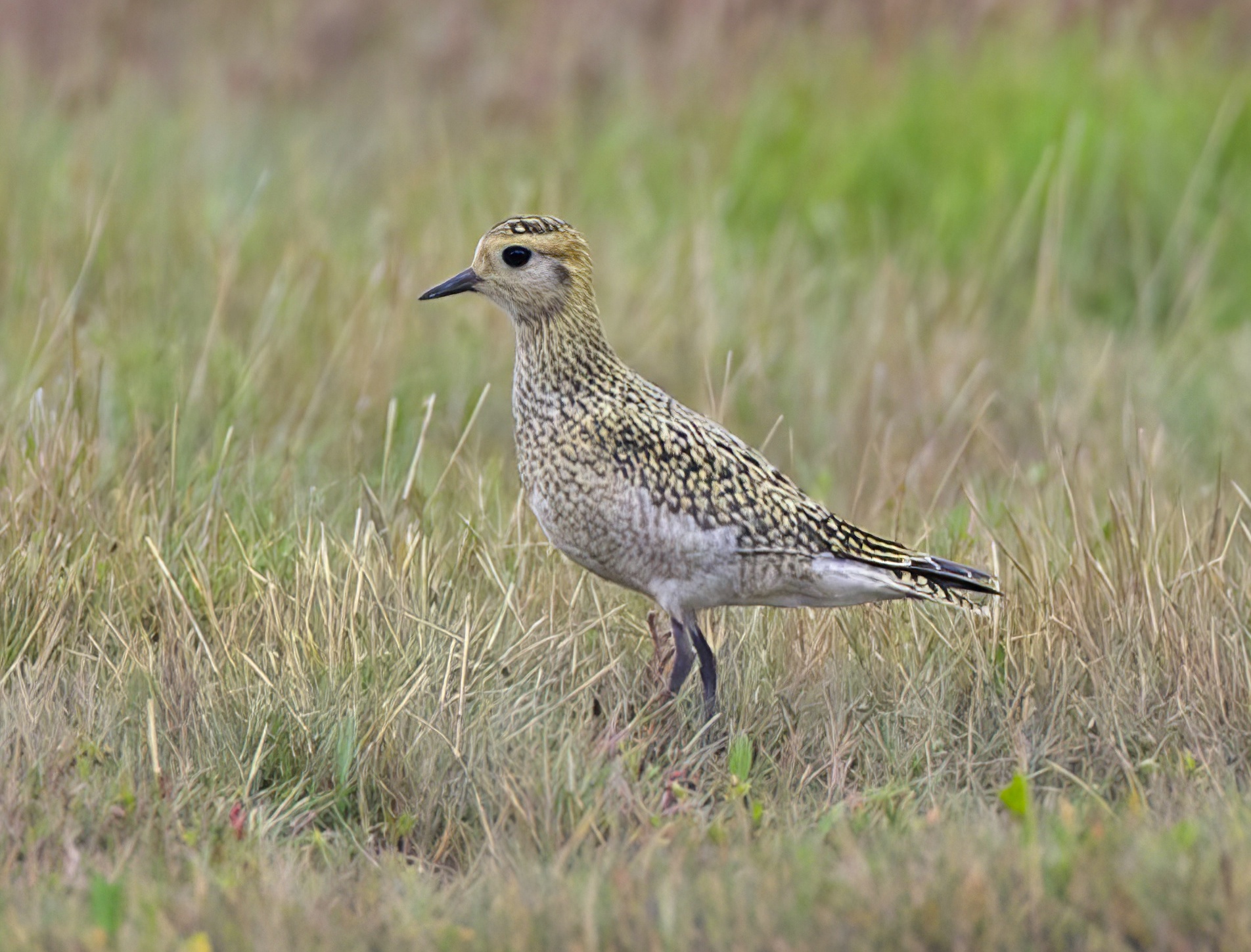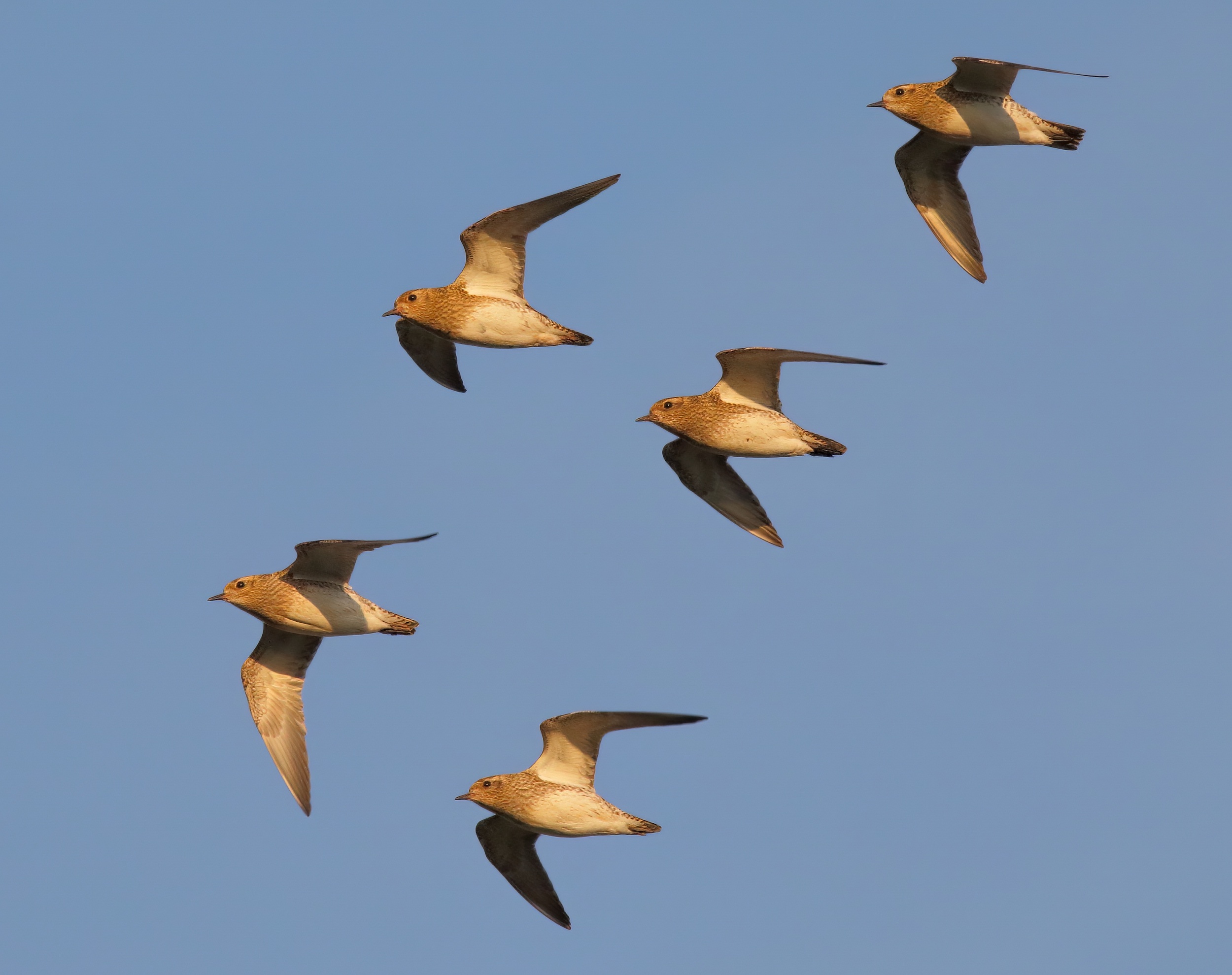European Golden Plover Pluvilais apricaria


European Golden Plovers are widespread wintering birds in Lincolnshire found in every 10km square during the BTO Atlas 2007-2011. The Humber is the most important wintering site for the species in Britain. WeBS data indicates that the rolling 5-year mean Lincolnshire wintering population to 2018-19 was around 47,000 of which 32,000 were around the Humber and 13,000 around The Wash and only 4,000 inland. It is possible that this total is understated because many birds feed in fields across the county and don't get counted. Observer experience suggests that this behaviour is declining as agricultural intensification proceeds and the food value of arable feeds declines for birds. There is also considerable movement and flocks can be very mobile. Some individual flocks can be massive with Alkborough Flats and Read's Island holding flocks of 26,000 birds in November 2016 and November 2014 respectively. Other sites reporting flocks of more than 10,000 on the Humber included Cleethorpes-Grainthorpe (10,000 November 2014) and on The Wash, Frampton Marsh (15,000 January 2015) and Gibraltar Point (10,000 November 2014). The annual WeBS report for 2018-19 indicates that the long term 25-year trend for Golden Plover wintering in England is up 13%. More recently, the 2020 January-February peak totals for Frampton Marsh and Read's Island alone were around 42,000 indicative of this positive trend.
(Account as per new Birds of Lincolnshire (2021), included September 2022)
